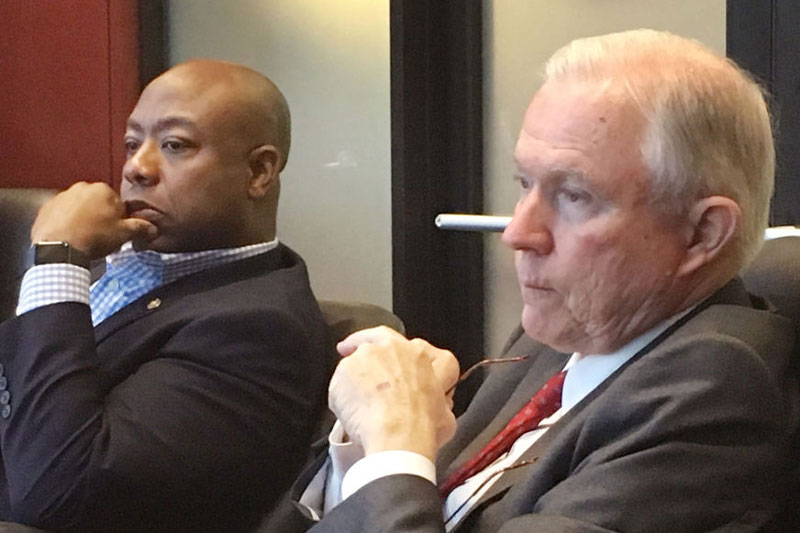In a stunningly obvious move, Jeff Sessions decided to enforce federal law – to the letter – just as he is doing with immigration. However, in this instance, he is also enforcing existing federal laws on marijuana. Should the precedent be established where an administration can pick and choose what laws to enforce? Obama thought so, and thus we had DACA Amnesty.
Jeff Sessions’ decision took the 2013 memo from the Deputy Attorney General of that time – James M. Cole and overturned it completely. The Cole memo was issued as the State of Colorado and Washington legalized the use of Marijuana. The Cole memo went on to lay out instructions to the U.S. Attorneys to not to enforce the federal laws against marijuana use – the Marijuana schedule I status when the recreational use of the drug is legalized and regulated by the state itself.
As Sessions replaced the Cole memo, the memo is now replaced by new guidance brought forward by the Attorney General Jeff Sessions. The guidance asks the prosecutors to simply “follow the well-established principles that govern all federal prosecutions.”
Furthermore, the law enforcement officials appreciated the bold move by Sessions, saying, “We applaud the Attorney General for this action today that brings clarity on enforcement of the law by rescinding a confusing policy brought on by the previous administration that hindered law enforcement. This will allow sheriffs to carry out their mission of upholding the rule of law and keeping their communities safe,” said National Sheriffs’ Association President Harold Eavenson and Executive Director Jonathan Thompson in a statement.
The President of the Fraternal Order of Police – Chuck Canterbury – is of the opinion that the nullifying of Cole’s memo is a way to return discretion to law, rather than a way to crackdown the recreational use of the drug. In a statement, he said, “The Attorney General’s announcement is good news for public safety and public health. There will be no Federal agents chasing individual users—but it will give law enforcement the discretion it lost when the Cole Memo was issued.”
Among the many law enforcement officials claiming that the state level legalization of the marijuana has a very negative effect on the Public safety. Canterbury was of the same opinion, and further, pointed to all the increases in the deaths, and injuries caused due to accidents where the drivers were under the influence.
“This experiment of giving cover to drug dealers has had fatal consequences. When marijuana was ‘legalized’ in Colorado, traffic-related deaths due to marijuana rose from 13% to 20%. This is costing people their lives,” he said in his statement.
“Drug-related deaths currently exceed motor vehicle deaths, and while some states have taken steps to change the legal status of marijuana, the substance’s illegality remains federal law,” noted Nathan Catura, the president of the Federal Law Enforcement Officers Association.
Bob Bushman, the president of the National Narcotic Officers’ Associations’ Coalition, in his statement claims that the enforcement was especially important given the nation’s increasingly deadly opioid epidemic.
“Given the current drug epidemic facing our country that is resulting in so much addiction and so many drug poisoning deaths,” said Bushman, “we should be doing everything we can to discourage and curb illegal drug use. That includes marijuana.”























